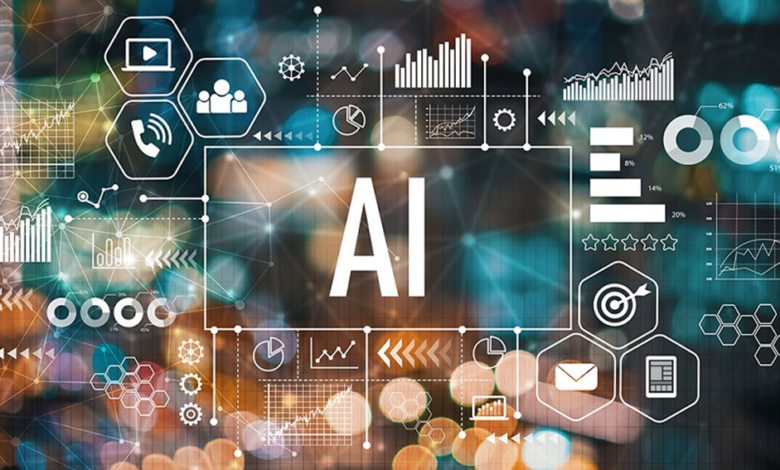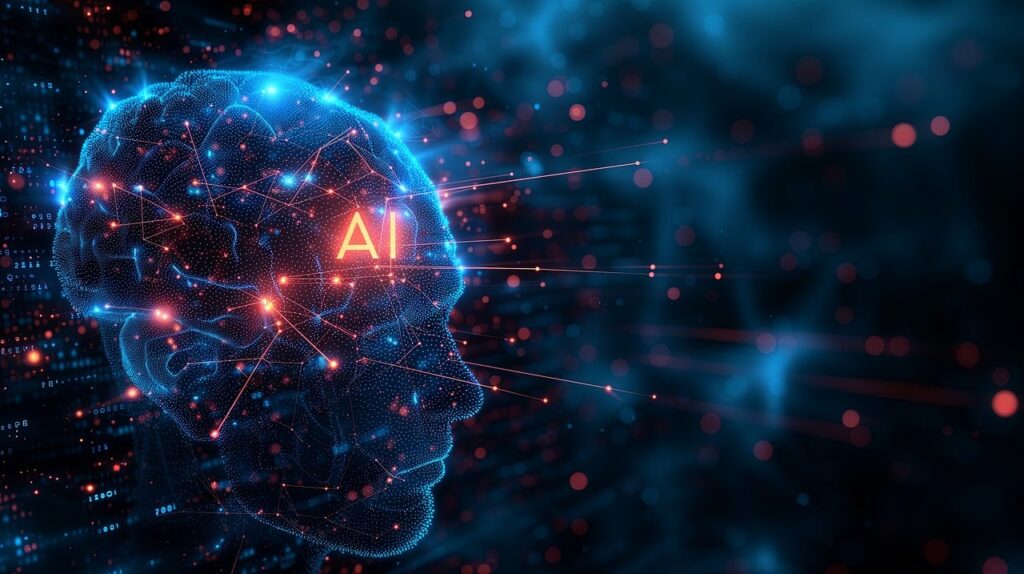The Role of Artificial Intelligence in Digital Marketing

Artificial Intelligence is revolutionizing digital marketing by delivering hyper-personalized customer experiences, automating complex campaigns, and providing deep insights through predictive analytics. From tailored recommendations that enhance customer loyalty on e-commerce platforms to AI-driven content creation that boosts SEO performance, the integration of AI technologies empowers marketers to optimize their strategies with unprecedented precision and efficiency. By leveraging machine learning and automation, businesses can anticipate consumer behaviors, streamline marketing efforts, and achieve scalable growth, ensuring they stay ahead in the competitive digital landscape. This comprehensive transformation not only elevates customer satisfaction but also drives sustained business success through intelligent, data-driven decision-making.

Enhancing Customer Journeys Through AI-Driven Personalization
In the fiercely competitive landscape of digital marketing, standing out means delivering personalized customer experiences that resonate on an individual level. Leveraging Artificial Intelligence, marketers can dive deep into consumer data, uncovering patterns and preferences that were once hidden. This level of insight allows for tailored marketing efforts that speak directly to each customer’s unique needs and desires, transforming generic campaigns into impactful interactions.
Take recommendation engines, for instance—ubiquitous on leading e-commerce platforms. These AI-powered tools analyze past behavior, purchase history, and even browsing patterns to suggest products that customers are most likely to love. This not only enhances the shopping experience but also drives higher customer satisfaction and fosters unwavering loyalty. When customers feel understood and valued, they’re more inclined to return, making personalization a game-changer in building long-term relationships.
AI-Driven Content Creation and Optimization
Harnessing the power of AI tools transforms how marketers generate and refine their content. These intelligent solutions streamline the creation of high-quality blog posts, engaging social media updates, and effective ad copy, all while maintaining a consistent brand voice. By automating repetitive tasks, AI allows marketers to focus on strategy and creativity, ensuring that every piece of content resonates with the target audience.
Popular AI platforms are at the forefront of this revolution:
- Jasper – Excels in crafting detailed blog articles and persuasive ad copy with minimal input.
- Copy.ai – Specializes in generating creative social media content that drives engagement.
- Surfer SEO – Integrates seamlessly with content creation tools to optimize SEO and enhance content relevance.
Implementing AI in your content strategy offers numerous advantages:
- SEO Optimization – AI analyzes current trends and keywords to boost search engine rankings.
- Content Relevance – Ensures that your content stays timely and aligned with audience interests.
- Efficiency – Accelerates the content creation process, allowing for quicker turnaround times without sacrificing quality.
Enhancing Customer Insights through Predictive Analytics
In the competitive landscape of digital marketing, understanding your customers is non-negotiable. Artificial Intelligence leverages predictive analytics to forecast customer behavior and market trends, giving businesses a strategic edge. By analyzing vast amounts of data, AI identifies patterns that might go unnoticed, enabling marketers to tailor their campaigns with precision. For instance, a leading e-commerce platform used predictive analytics to anticipate shopping behaviors, resulting in a 30% increase in conversion rates.
Experts emphasize the transformative power of integrating AI-driven insights into marketing strategies. Predictive analytics is not just about knowing what your customers will do, but understanding why they do it, says Dr. Emily Turner, a marketing technology specialist. Successful campaigns often hinge on this deep understanding. By incorporating AI insights, marketers can design personalized experiences that resonate with their audience, ultimately driving engagement and loyalty. The seamless integration of these insights ensures that marketing efforts are not only data-driven but also customer-centric, aligning perfectly with the ever-evolving market dynamics.
Real-world case studies highlight the tangible benefits of predictive analytics. A renowned financial services company implemented AI to analyze customer interactions and transaction histories, which led to the development of targeted retention strategies. This initiative reduced churn rates by 25%, showcasing how predictive analytics can directly impact the bottom line. By embedding AI insights into their marketing strategies, businesses can make informed decisions, optimize their campaign outcomes, and stay ahead in the fast-paced digital world.

Automating Marketing Campaigns with AI Technologies
Imagine slicing your email marketing workload in half while boosting engagement rates. With AI-powered tools like HubSpot and Mailchimp, marketers are no longer bogged down by repetitive tasks. These platforms leverage machine learning to personalize email content, optimize send times, and even predict customer behavior, ensuring each campaign hits the mark every time.
When it comes to ad placement, AI doesn’t just set and forget. Programs like AdEspresso and Google Ads Smart Bidding analyze vast amounts of data to determine the most effective ad placements and budgets in real-time. This means higher ROI and smarter spending, freeing up resources to focus on creative strategies rather than manual adjustments.
Take the case of H&M, which utilized AI-driven social media scheduling to streamline their posts across multiple platforms. The result? A 20% increase in engagement and a significantly reduced time investment from their marketing team. By embracing automation, businesses can achieve unprecedented scalability and efficiency, turning what once was a tedious process into a seamless, high-impact operation.

AI in Enhancing SEO Strategies and Performance
Gone are the days when manual SEO efforts could keep up with the relentless pace of search engine algorithms. Today, Artificial Intelligence is revolutionizing how businesses approach search engine optimization, offering tools that dive deep into data to uncover insights humans might miss. With AI-driven keyword research, marketers can identify high-impact terms that resonate with their target audience, while backlink analysis tools powered by AI assess the quality and relevance of inbound links, ensuring your site maintains a strong domain authority.
Take, for instance, the case of a mid-sized e-commerce company that integrated an AI-based content strategy tool. By analyzing user behavior and trending topics, the AI generated content recommendations that boosted their organic traffic by 40% within three months. Similarly, another business leveraged AI for SEO performance tracking, allowing them to make data-backed decisions that enhanced their search rankings and increased their conversion rates significantly. These measurable improvements showcase how AI not only streamlines SEO processes but also delivers tangible results, making it an indispensable ally in the competitive digital landscape.
Frequently Asked Questions
How can small businesses implement AI in their digital marketing strategies?
Small businesses can start by utilizing affordable AI-powered tools for email marketing, social media management, and customer relationship management (CRM). These tools often offer user-friendly interfaces and scalable solutions that allow small businesses to personalize their marketing efforts, analyze customer data, and automate routine tasks without requiring extensive technical expertise.
What are the common challenges when integrating AI into marketing?
Common challenges include data privacy concerns, the high cost of advanced AI technologies, and the need for skilled personnel to manage and interpret AI systems. Additionally, integrating AI with existing marketing platforms and ensuring data quality can be significant hurdles. Overcoming these challenges often requires a strategic approach, including investing in training and choosing the right AI tools that align with the business’s specific needs.
How does AI impact the cost-effectiveness of marketing campaigns?
AI enhances cost-effectiveness by automating repetitive tasks, optimizing ad spend through precise targeting, and improving campaign performance through data-driven insights. By reducing the time and resources needed for manual tasks and enabling more accurate targeting and personalization, businesses can achieve better results with lower costs, leading to a higher return on investment (ROI) for their marketing campaigns.
What ethical considerations should marketers keep in mind when using AI?
Marketers should ensure that AI applications respect user privacy and comply with data protection regulations. It’s important to use data transparently and avoid biases in AI algorithms that could lead to unfair targeting or discrimination. Additionally, maintaining transparency with customers about how their data is used and ensuring that AI-driven decisions are ethical and accountable are crucial for building trust and maintaining a positive brand reputation.
What future trends are expected in AI-driven digital marketing?
Future trends in AI-driven digital marketing include the increased use of conversational AI and chatbots for enhanced customer interaction, the integration of augmented reality (AR) and virtual reality (VR) with AI for immersive marketing experiences, and the advancement of predictive analytics for more accurate forecasting of market trends. Additionally, there will be a growing emphasis on ethical AI and the development of more sophisticated personalization techniques to meet evolving consumer expectations.






One Comment